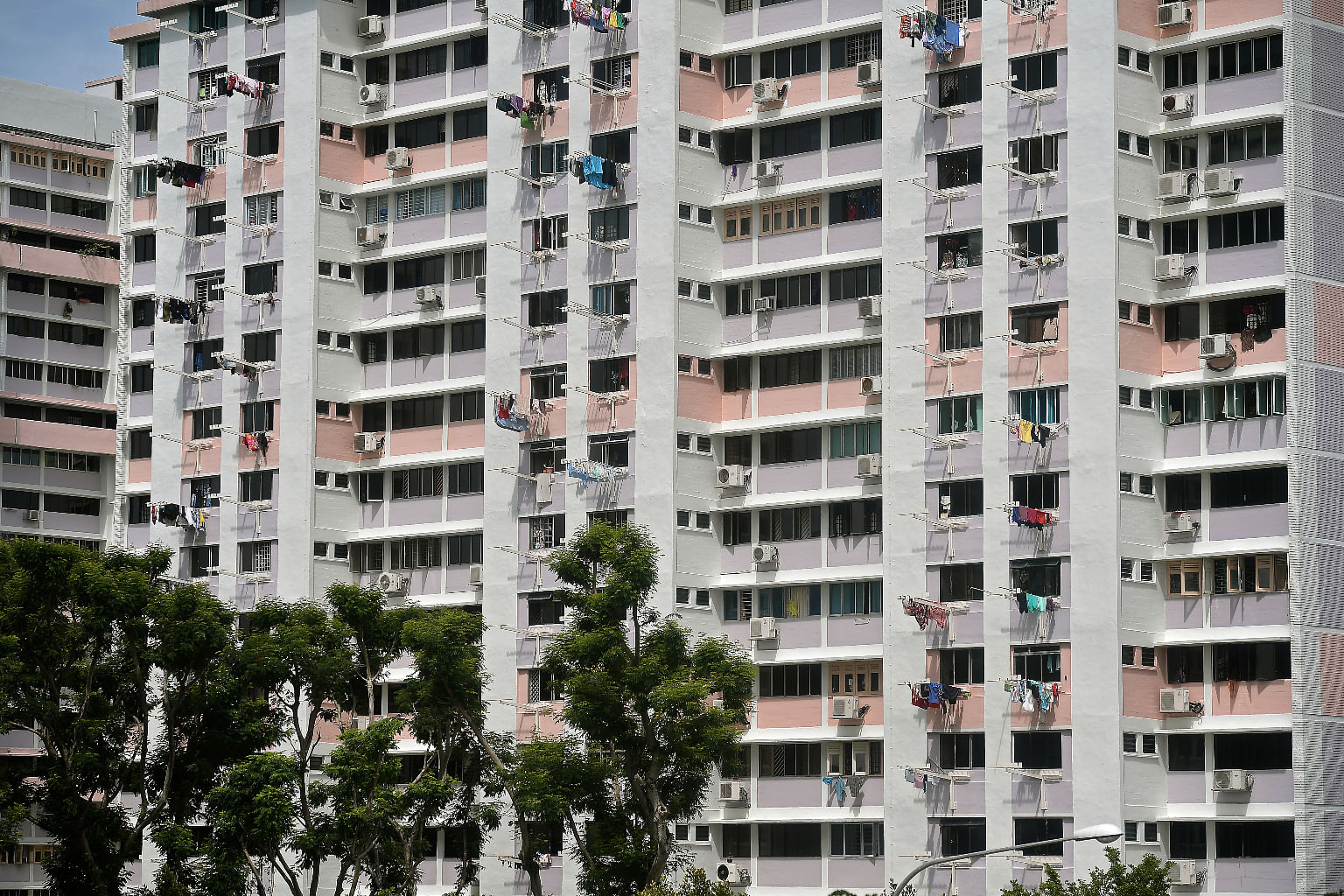Close contacts of Covid-19 cases to have shorter monitoring period of 5 days
Sign up now: Get ST's newsletters delivered to your inbox

Close contacts of confirmed Omicron cases will have their self-monitoring period will be cut to five days instead of seven.
ST PHOTO: KUA CHEE SIONG
Follow topic:
SINGAPORE - Close contacts of confirmed Covid-19 cases will no longer receive a health risk warning (HRW) from this Friday (Feb 18). Their self-monitoring period will be cut to five days from seven, said the Ministry of Health on Wednesday.
This is because the Omicron variant is known to have a shorter incubation period, it added.
Therefore, the HRW will be replaced with a new advisory, known as the health risk notice (HRN), which will last for five days.
The HRW mandates that one must self-isolate immediately and take an antigen rapid test (ART) self-test within 24 hours if one is a close contact of an infected person.
The warning lasts for seven days from the date of issuance, with an ART-based daily self-testing regime imposed should a person wish to leave his place of residence.
He is allowed to go about his daily activities if he tests negative, though he must continue to monitor his health for seven days, such as by doing a test before leaving home.
However, many close contacts of cases who test positive through self-administered ARTs are not able to be identified and are thus not issued the HRW, MOH noted.
Health Minister Ong Ye Kung said on Wednesday at a press conference by the multi-ministry task force on Covid-19 that Omicron patients recover faster owing to a shorter incubation duration and an earlier infection window, which means there is a very "short serial interval".
This refers to the time taken for the first person to be infected and start experiencing symptoms, and then infect the next person, who then starts experiencing symptoms.
Mr Ong noted that the serial interval for Delta is about four days, while it is only two days for Omicron.
"So our health protocols need to adapt to this distinct characteristic of Omicron having a very short serial interval," he added.
Hence, the change to a shorter monitoring period with the HRN advisory.
Singapore’s director of medical services Kenneth Mak said the HRN, unlike the HRW, is not backed by a legislative requirement but is more to give a person advance notice that he has been a close contact and should take the necessary precautions to self-isolate.
“It doesn’t require a mandated period of self-isolation, but this is in keeping with our general approach to emphasise a lot more self-responsibility in managing one’s health as well as Covid-19 infections,” he added.
Singapore’s director of medical services Kenneth Mak said the HRN, unlike the HRW, is not backed by a legislative requirement but is more to give a person advance notice that he has been a close contact and should take the necessary precautions to self-isolate.
“It doesn’t require a mandated period of self-isolation, but this is in keeping with our general approach to emphasise a lot more self-responsibility in managing one’s health as well as Covid-19 infections,” he added.
Associate Professor Mak said the National Centre for Infectious Diseases has been studying the data in the group of close contacts in both household and community settings, and found the incubation period and serial interval for the next wave of infections is "significantly shorter".
Therefore, as close contacts are developing their Covid-19 infections faster after exposure to an infected person, it was necessary to make changes to the health protocol.
Prof Mak also noted that a shorter self-monitoring period will allow close contacts to resume their daily activities sooner once they test negative.
People issued with a HRN can continue to obtain their ART test kits through designated vending machines, to facilitate their self-testing during their five-day monitoring period, he added.
However, as the change in policy kicks in only on Friday, those who have already received their HRW should still complete their existing monitoring period, said Prof Mak.
MOH also stressed that regardless of whether they receive a HRN, those who are aware of their recent exposure to a confirmed case should still continue to be socially responsible.
This means that they should continue to moderate their social activities, monitor their health and self-test with ART before leaving their homes, especially if they are going to crowded places or coming into contact with vulnerable people.

